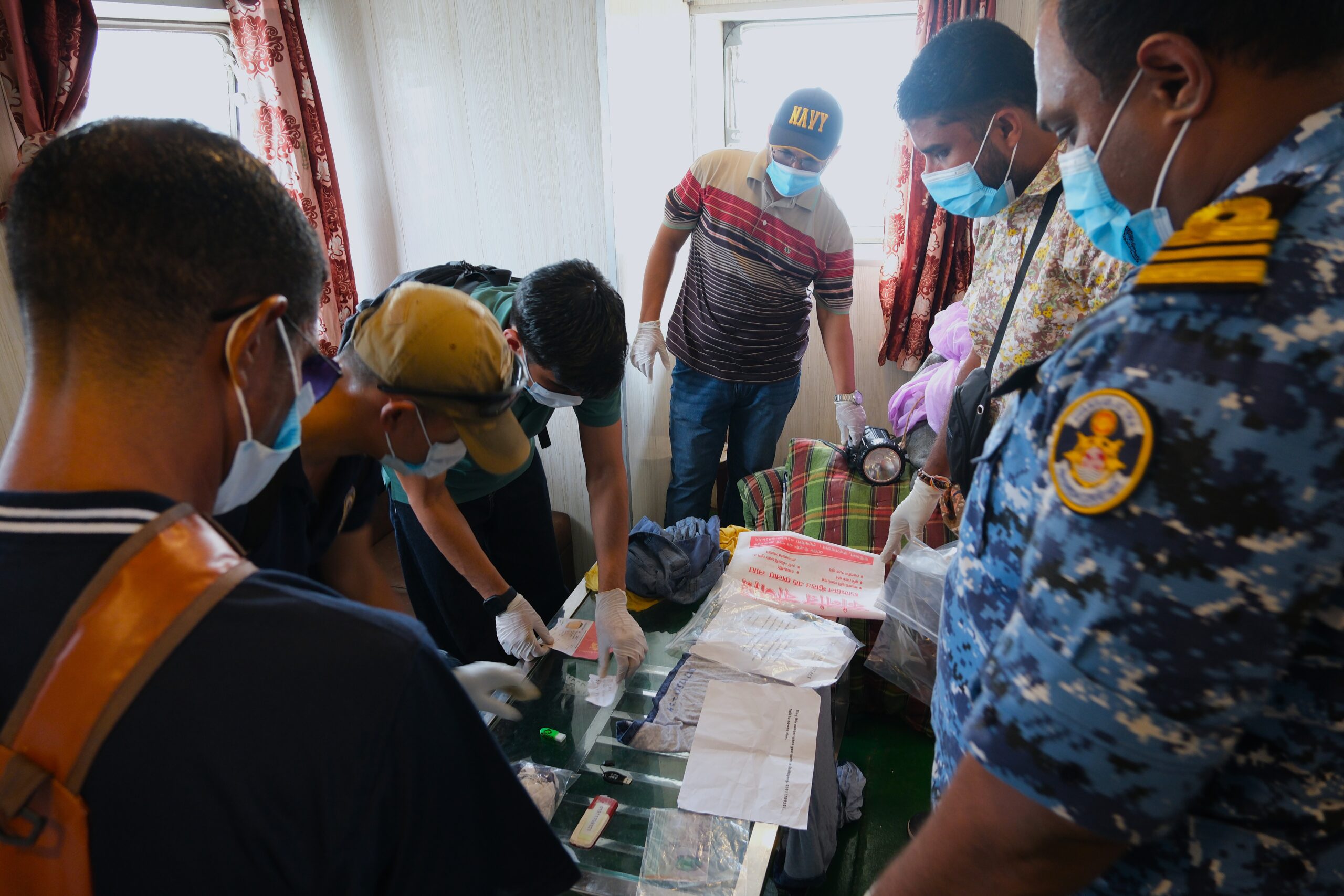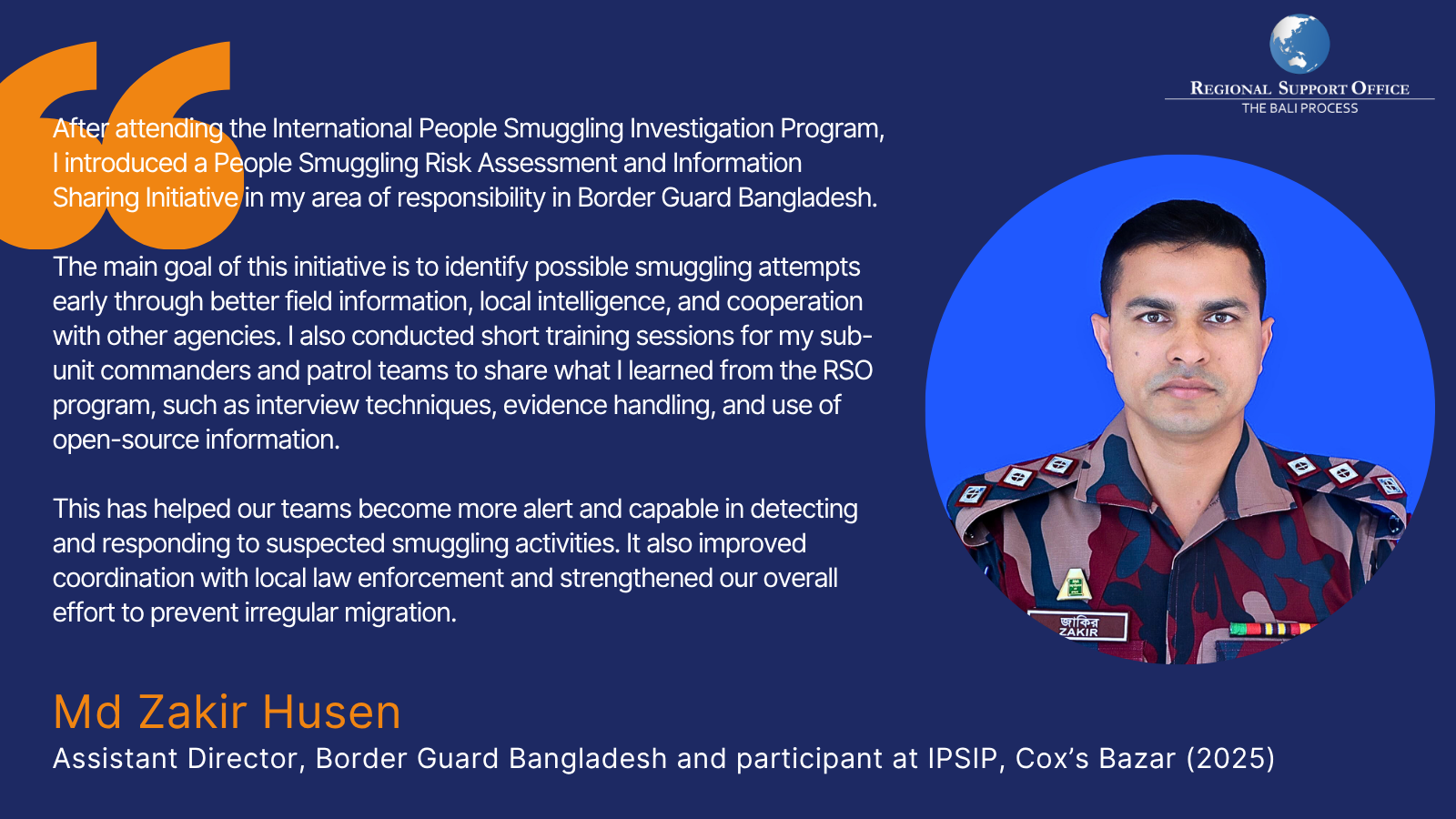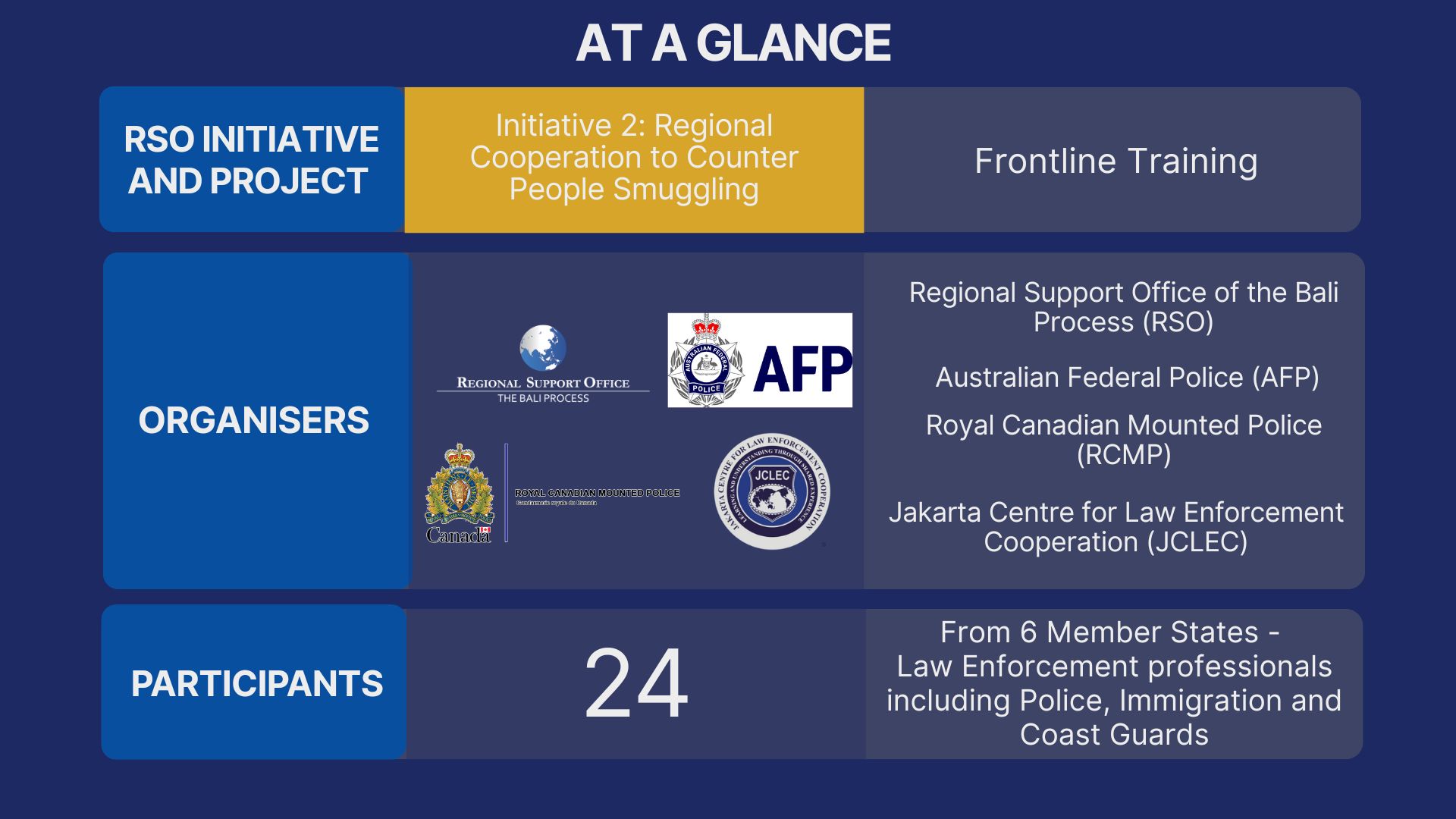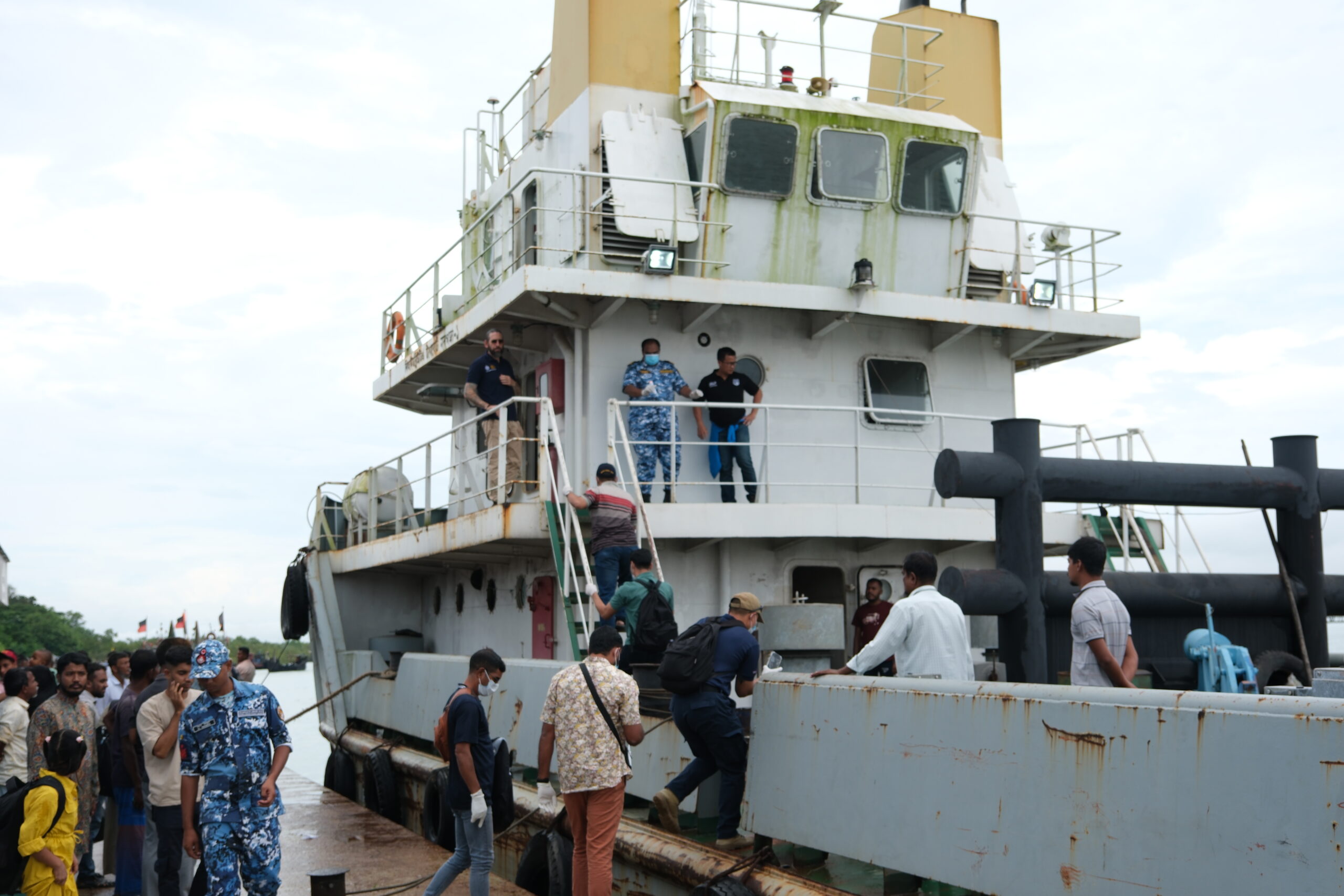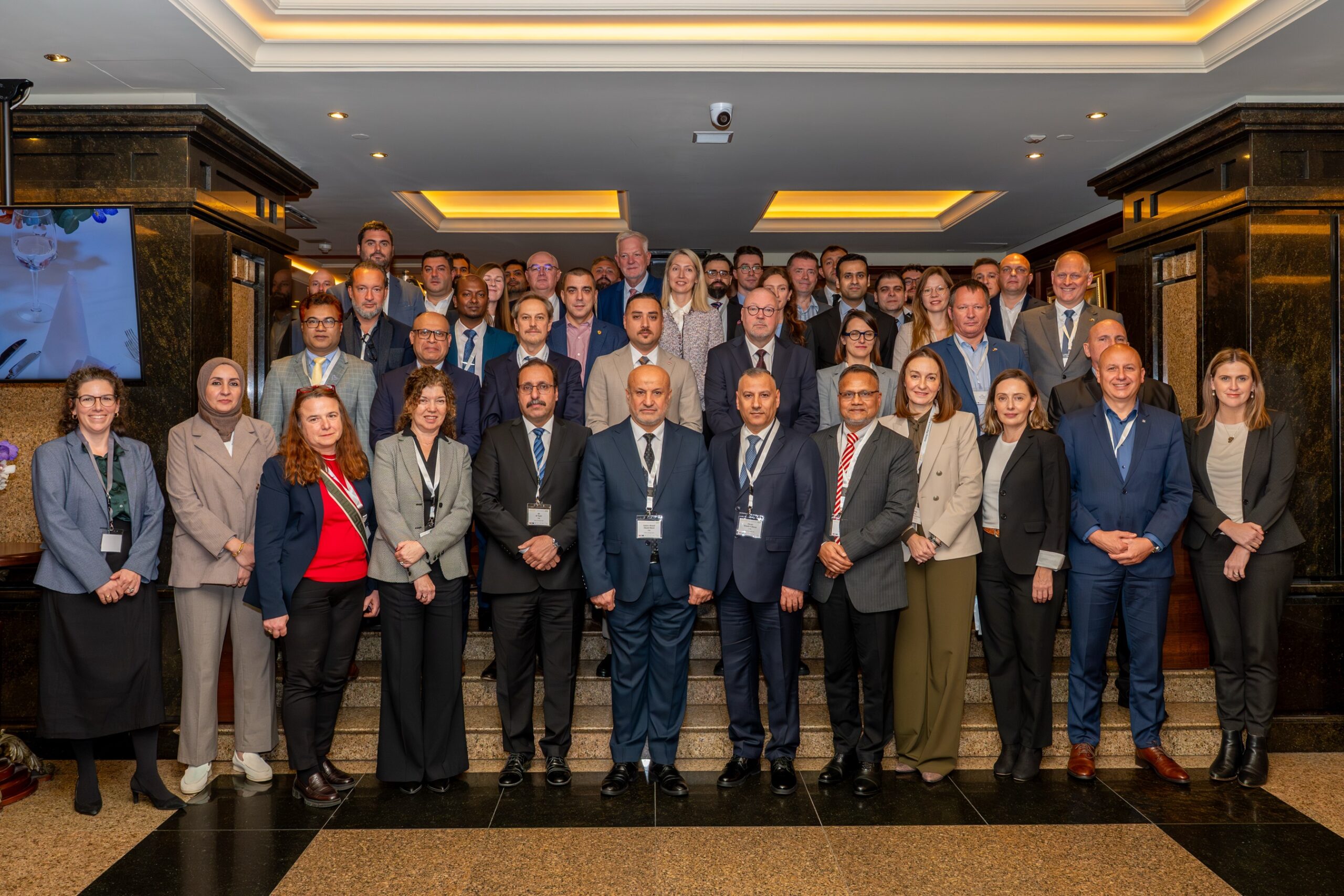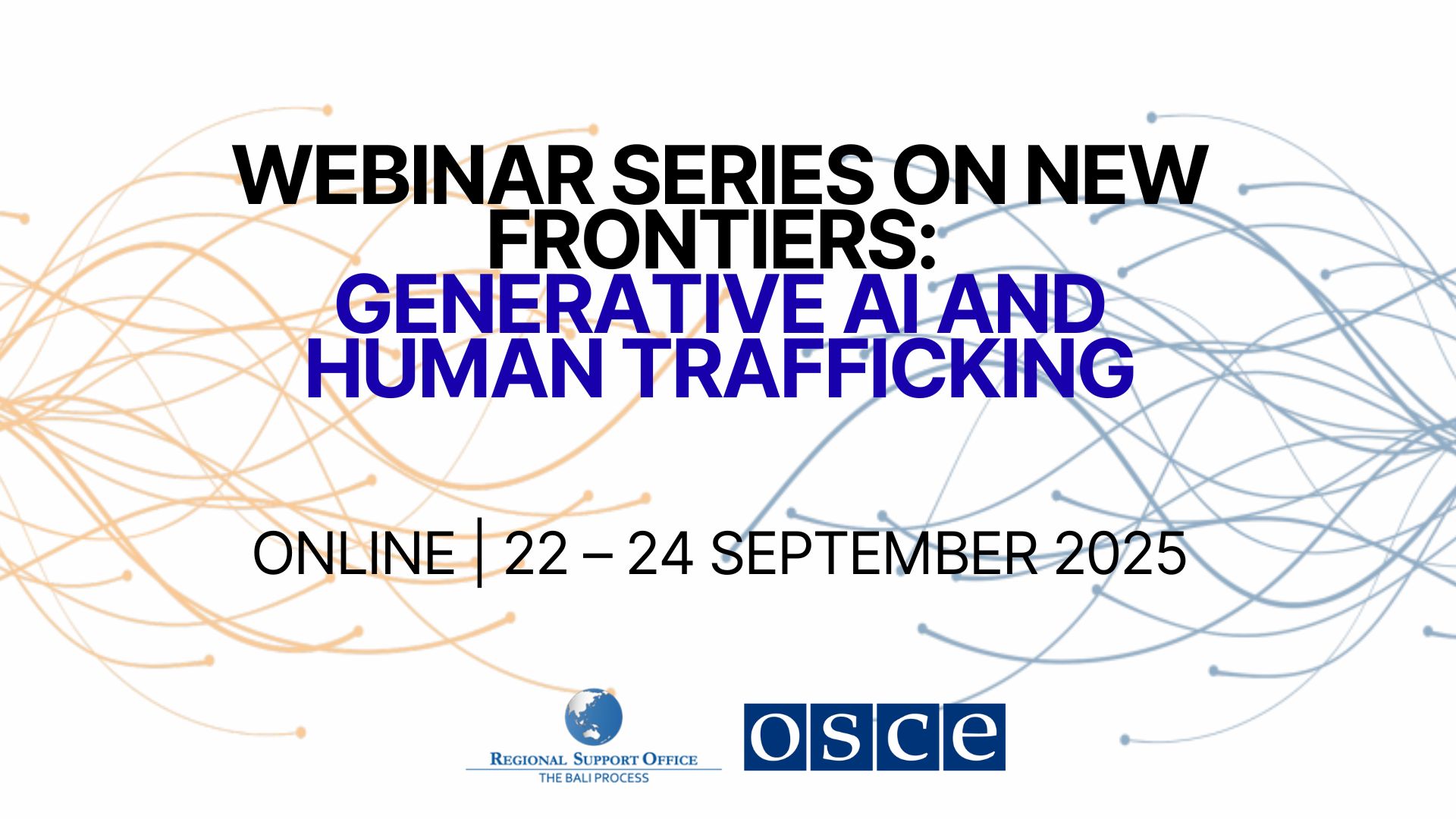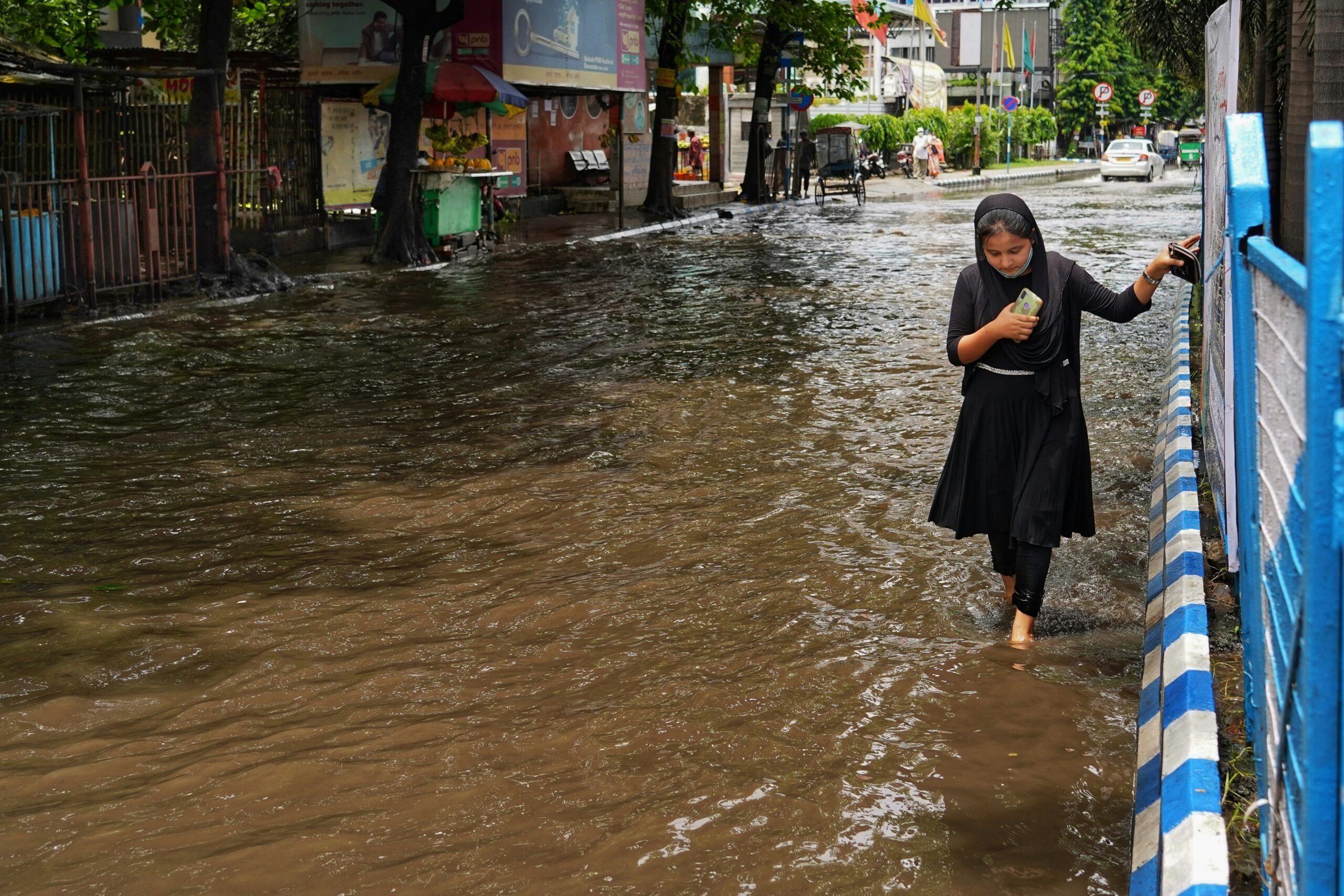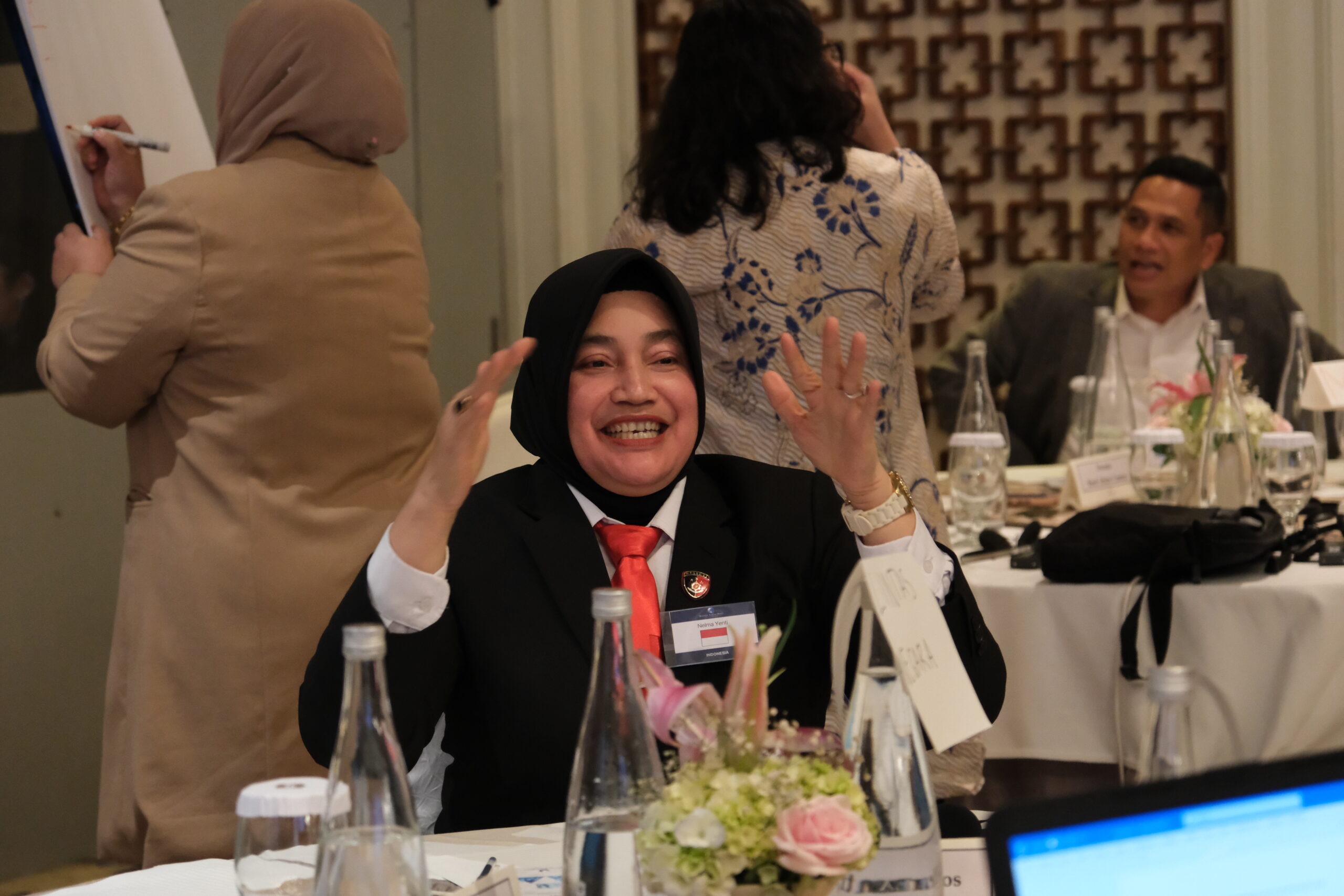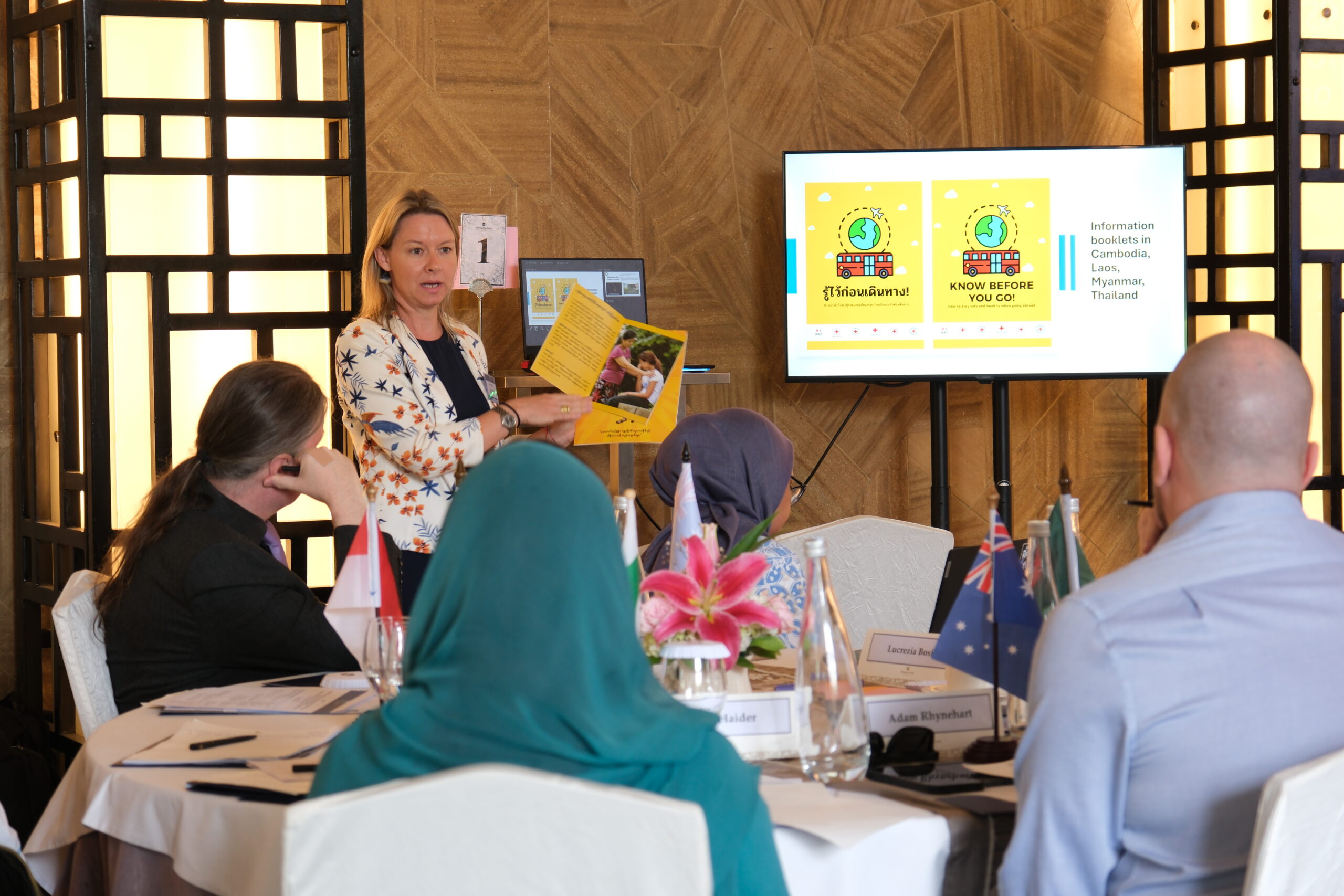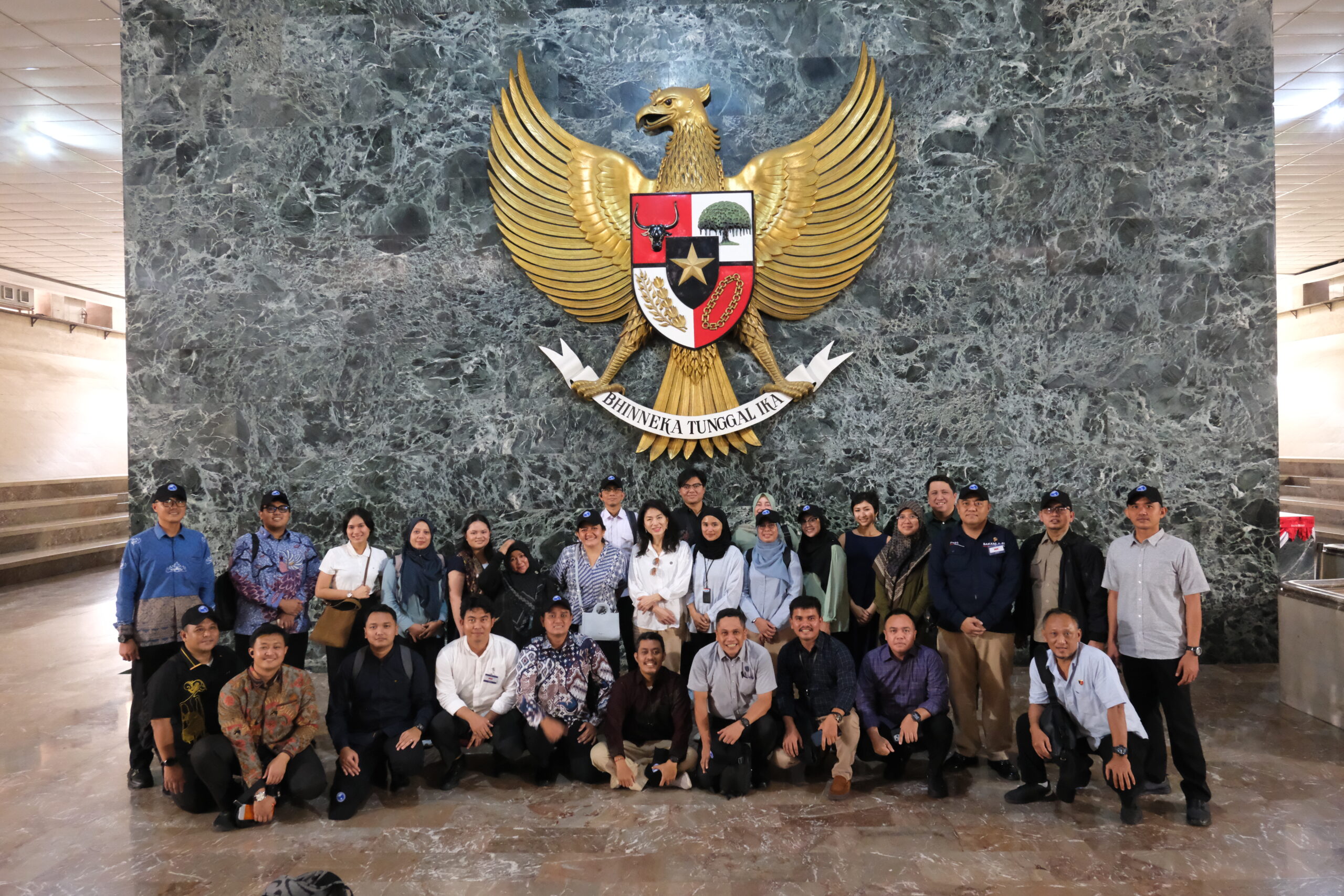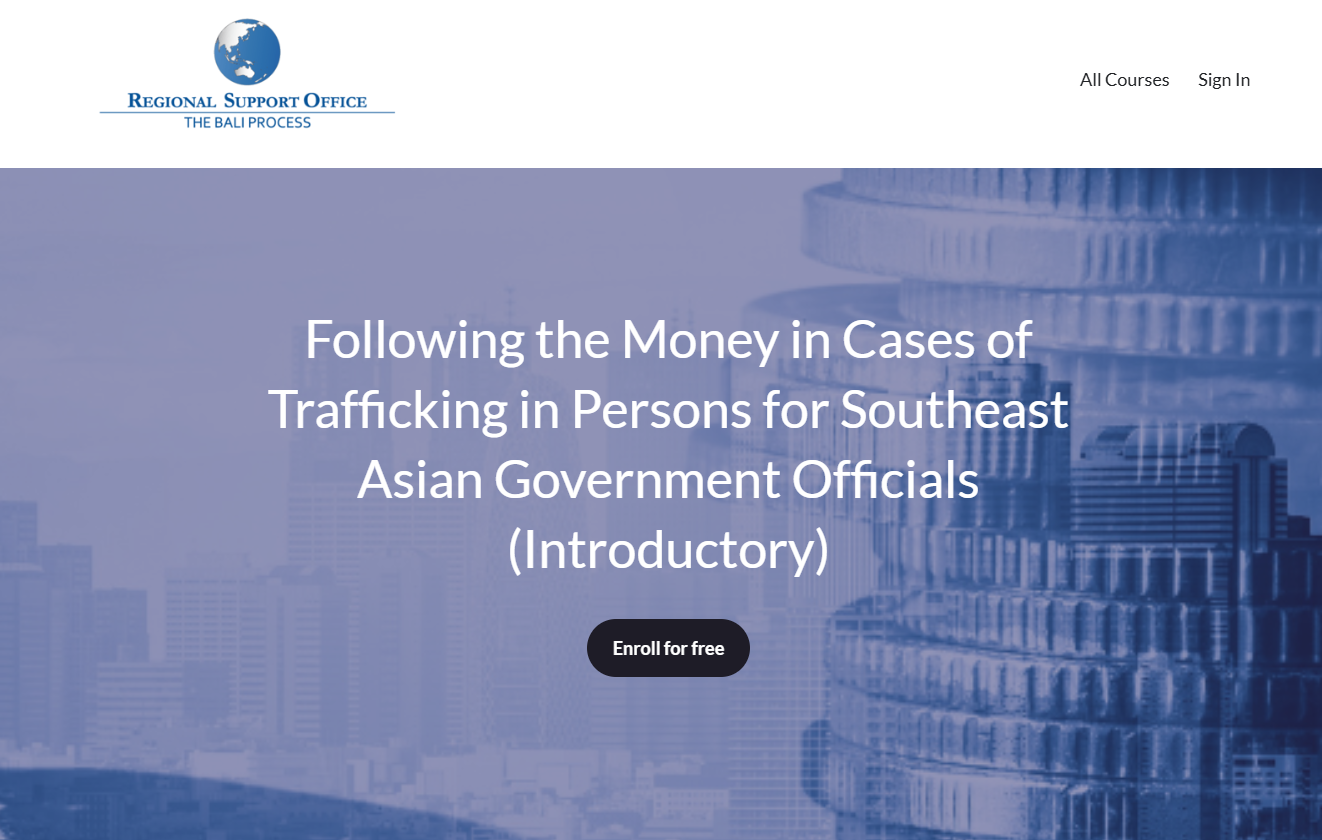13 – 26 September 2025 • Cox’s Bazar, Bangladesh
Southeast Asia collectively hosts more than three million forcibly displaced and stateless people. With few safe and legal pathways available, irregular movements—by land, sea, and air—continue to persist, often facilitated by people smuggling groups that continue to exploit enforcement gaps, evolve their tactics and exploit new technologies. Strengthening coordinated responses among Bali Process Member States remains critical to addressing these escalating challenges.
Cox’s Bazar, Bangladesh remains a prominent departure point for irregular maritime movements, driven by economic vulnerability and the presence of displaced Rohingya populations. The United Nations Refugees Agency (UNHCR) reports that nearly one in five people attempting to cross the Andaman Sea and Bay of Bengal through irregular means have been reported dead or missing so far in 2025, making these waters among the deadliest migration routes in the world.
Against this backdrop, the Jakarta Centre for Law Enforcement Cooperation (JCLEC), the Australian Federal Police (AFP), the Royal Canadian Mounted Police (RCMP) and the Regional Support Office of the Bali Process (RSO) delivered the International People Smuggling Investigations Program (IPSIP) over 14–25 September 2025 in Cox’s Bazar, Bangladesh—with the support of the Government of Bangladesh—providing participants with a firsthand understanding of the operational realities and challenges faced in managing irregular migration.
The program—funded by the Australian Government Department of Home Affairs—brought together 24 law enforcement officers from Bangladesh, Indonesia, Malaysia, Sri Lanka, Thailand, and Timor-Leste, strengthening regional cooperation and enhancing investigative capacity to counter people smuggling through maritime, land, and air routes.
IPSIP is a comprehensive two-week intensive training course aimed at enhancing the skills and knowledge of law enforcement, border and immigration, and maritime and civil aviation officials to counter people smuggling and transnational crime.
The RSO has worked with IPSIP delivery partners over the past three years to regionalise its delivery, with previous locations including Colombo, Sri Lanka (2023) and Kuala Lumpur,
Malaysia (2024)—in addition to the program’s regular delivery at the JCLEC headquarters in Semarang, Indonesia.
The training provided participants with hands-on skills and actionable knowledge to address the complex realities of people smuggling across borders. Participants learned to map smuggling routes, profile networks, gather intelligence and engage in information sharing, while also improving their understanding of legal frameworks, protection mechanisms, and inter-agency coordination.
Through scenario-based simulation exercises—including boat, room, and car searches, as well as suspect and witness interviews—participants applied their learning in real-world contexts, refined investigative techniques with expert feedback, and built networks to strengthen international cooperation.
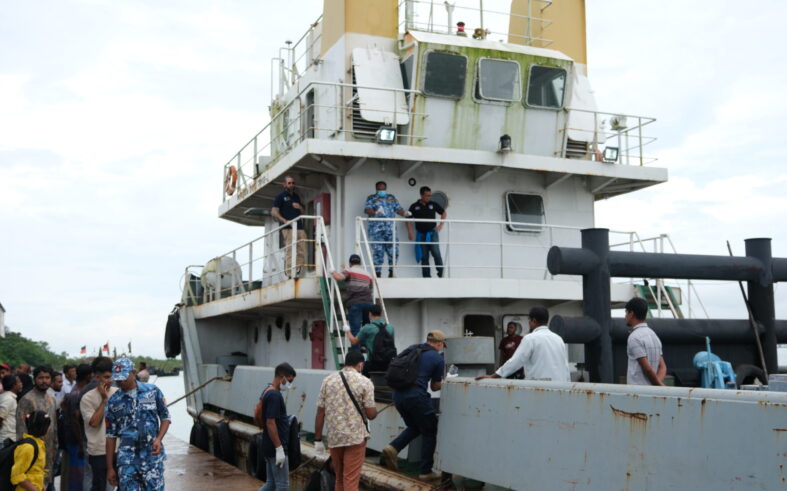
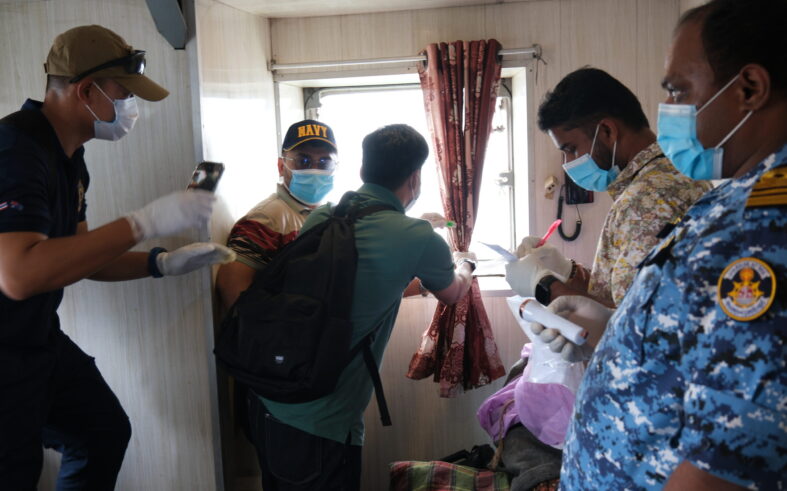
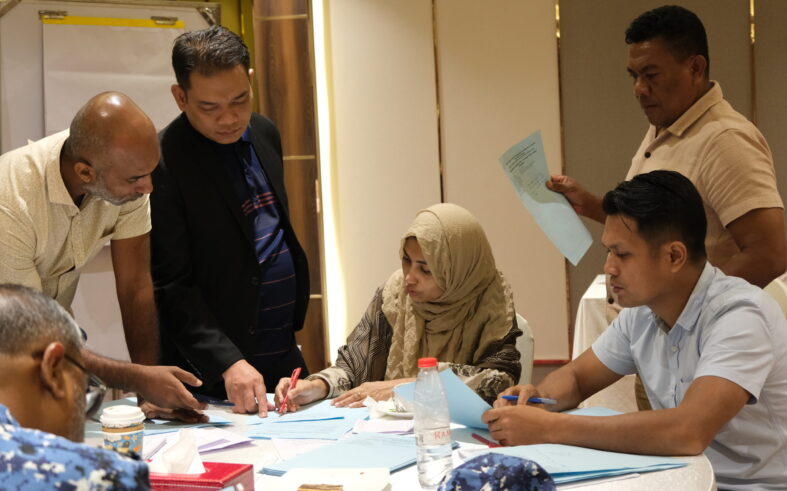
Participants demonstrated stronger regional awareness of interconnected smuggling routes across Bangladesh, Southeast Asia, and the Indian Ocean, and emphasised the need for coordinated rather than isolated responses. They showed keen interest in advanced investigative techniques such as financial tracking, digital evidence handling, and interviewing methods, crucial for dismantling smuggling networks.
Discussions also underscored the importance of cross-sector collaboration, integrating migration management, protection agencies, and social media monitoring into future counter-smuggling efforts. The importance of integrating the humanitarian protection component into investigations was also highlighted during the training.
The RSO continues to work closely with Member States to advance regional cooperation, including work underway to establish two regional platforms bringing together most affected Member States to enhance coordinated responses to people smuggling, transnational criminal group operations and irregular migration.
In November, the RSO will deliver the Workshop on Disrupting the Logistics of People Smuggling in Colombo, Sri Lanka, which will focus on raising awareness of the logistical structures/enablers underpinning people smuggling and strengthening strategies to disrupt these activities.
New planned research will examine misinformation patterns influencing migration decisions in the region, supporting evidence-based proposals for actionable policy and operational recommendations.


